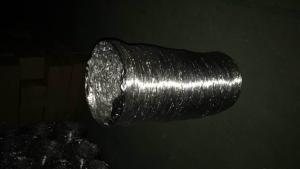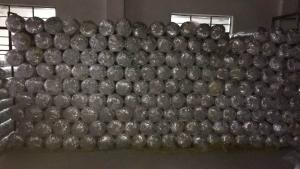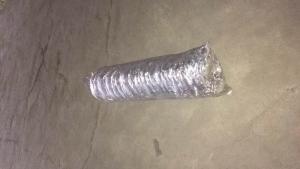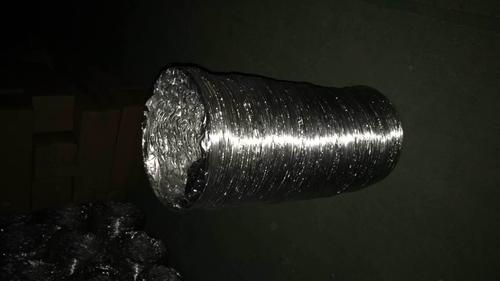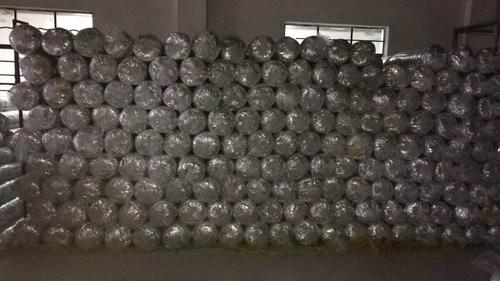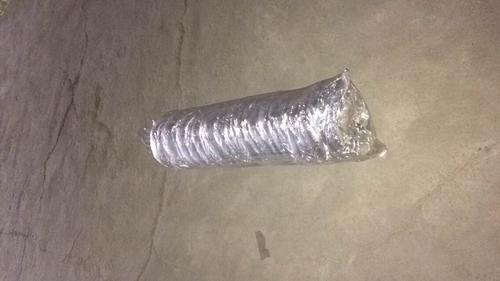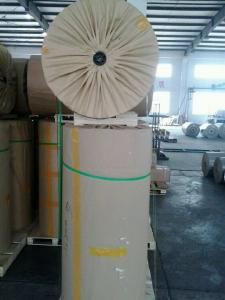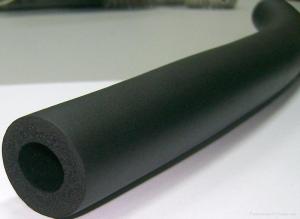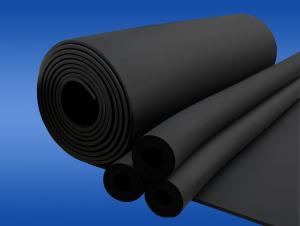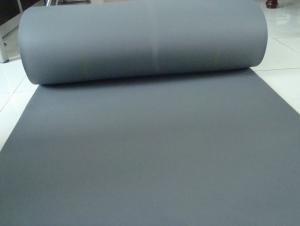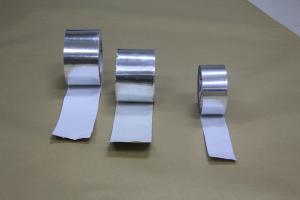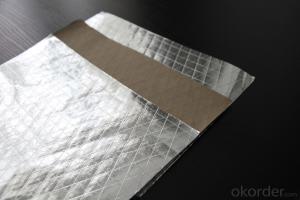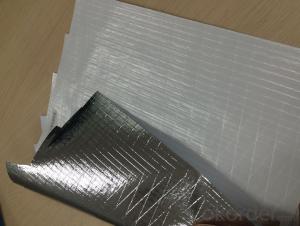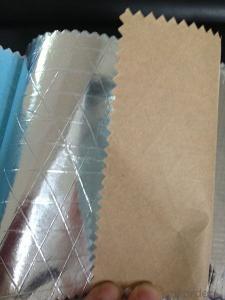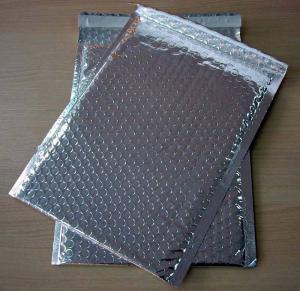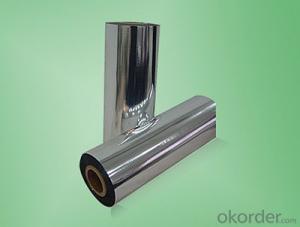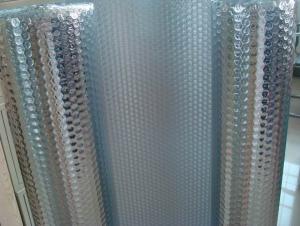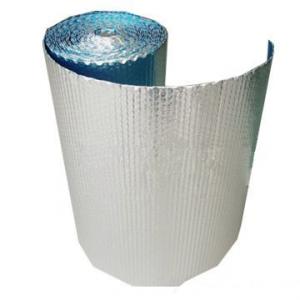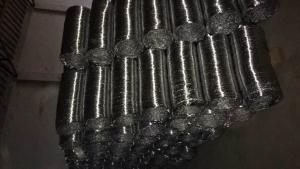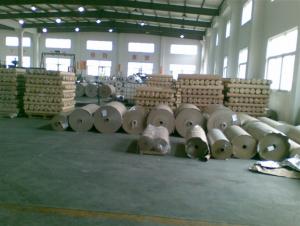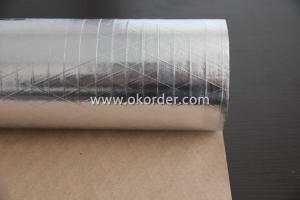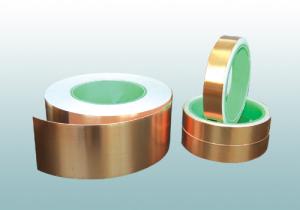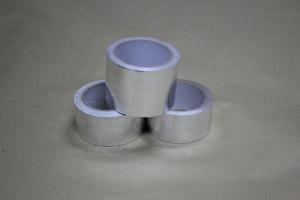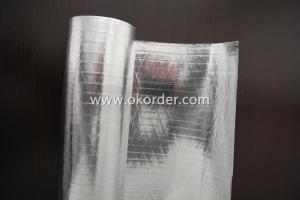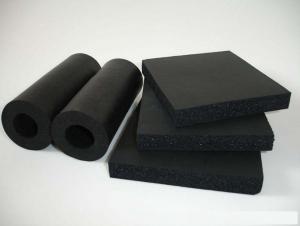Aluminum Foil Facing Laminated Aluminum Foil with PET and LDPE
- Loading Port:
- China Main Port
- Payment Terms:
- TT OR LC
- Min Order Qty:
- -
- Supply Capability:
- -
OKorder Service Pledge
OKorder Financial Service
You Might Also Like
| structure | Normal laminated thickness | Width | Length | Color | ID | OD | Packin |
| AL+PET | 7umAlu+15umPet+3umGlue | 6mm-1000mm as your required | 500m-7000m | Silver blue bronze black others | 2"or3" | 250mm-600mm | polybag caron pallet
|
| 9umAlu+12umPet+3umGlue | |||||||
| AL+PET+AL | 6umAlu+15umPet+6umAlu+6umGlue | ||||||
| PET+AL+PET | 15umPet+7umAlu+15umPet | ||||||
| AL+PET+EAA | 7umAL+15umPET+25umEAA+6umglue | ||||||
| AL+PET+AL+EAA | 7umAlu+15umPET+7umAlu+25umEAA+9umglue | ||||||
| PET+PET | 15umPet+15umPet +3umGlue | ||||||
| Polyester Tape | 15um,18um |
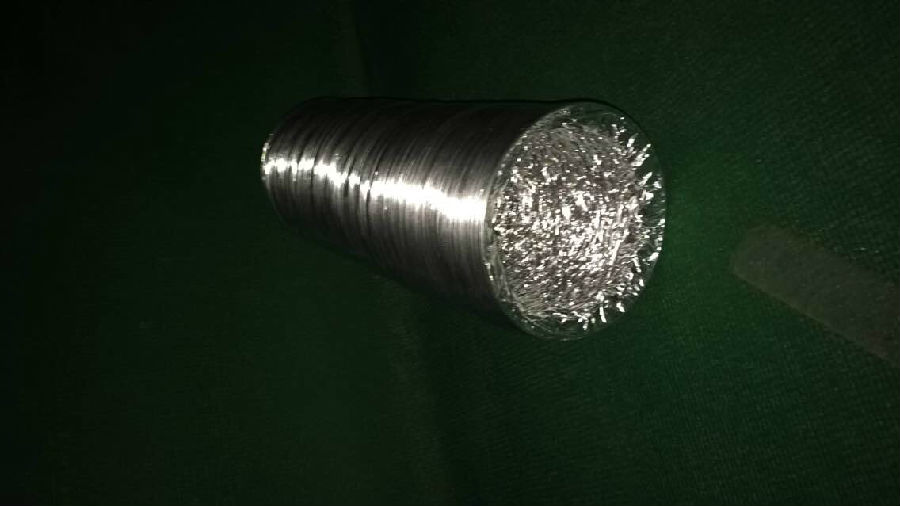
Description: Al+PET Tape(AL/myler Tape) | ||||
Composition:aluminium foil and polyester film | ||||
Structure | Thickness(um) | Proportion(g/m2) | Elongation(%) | Strength(N/15mm) |
6um AL/12um PET | 20 | 36 | 30 | 2.7 |
7um AL/15um PET | 25 | 43 | 35 | 2.7 |
7um AL/20um PET | 30 | 50 | 35 | 3 |
9um AL/12um PET | 25 | 45 | 30 | 2.7 |
9um AL/15um PET | 30 | 49 | 35 | 3 |
9um AL/20um PET | 35 | 55 | 35 | 3 |
9um AL/25um PET | 38 | 62 | 35 | 4 |
12um AL/12um PET | 25 | 53 | 20 | 2 |
12um AL/15um PET | 30 | 57 | 20 | 3 |
12um AL/20um PET | 35 | 63 | 30 | 4 |
15um AL/15um PET | 30 | 65 | 20 | 3 |
25um AL/15um PET | 45 | 92 | 20 | 3 |
30um AL/25um PET | 60 | 119 | 20 | 3 |
30um AL/30um PET | 65 | 126 | 20 | 5 |
40um AL/30um PET | 75 | 153 | 20 | 5 |
40um AL/38um PET | 80 | 163 | 20 | 5 |
50um AL/25um PET | 90 | 173 | 20 | 5 |
50um AL/50um PET | 100 | 207 | 35 | 6 |
Above values refer to our current production and must be intended as average values | ||||
- Q: What are the alternatives to using aluminum foil for food packaging?
- <p>Yes, there are several alternatives to aluminum foil for food packaging. These include biodegradable materials such as plant-based films, paper-based packaging, and compostable plastics. There are also reusable silicone food wraps and beeswax wraps that can be used multiple times. Additionally, glass and stainless steel containers are excellent alternatives for food storage and can be used instead of aluminum foil for certain applications. These alternatives not only reduce waste but also contribute to a more sustainable environment.</p>
- Q: Can an old aluminum foil facing be repurposed as a pizza stone for baking pizza crusts?
- <p>While it might be tempting to use an old aluminum foil facing as a pizza stone, it's not recommended. A proper pizza stone is made of materials like cordierite or ceramic, which can retain heat well and provide an even cooking surface. Aluminum foil conducts heat quickly and unevenly, which can lead to an unevenly baked crust and may even cause the foil to warp or melt. Instead, invest in a real pizza stone for the best results in baking pizza crusts.</p>
- Q: What are the options available to replace aluminum foil when covering food?
- <p>Yes, there are several alternatives to aluminum foil for covering food. Silicone food covers are reusable, heat-resistant, and can be easily washed. Beeswax wraps are an eco-friendly option, made from natural materials and can be used multiple times. Parchment paper is a disposable option that's ideal for baking and can be used in place of foil. Reusable glass or ceramic lids can be used for dishes that need to be covered while cooking. Lastly, some people opt for reusable metal mesh covers, which are suitable for grilling and baking. Each alternative has its own benefits and is chosen based on the specific needs and preferences of the user.</p>
- Q: Is it safe and practical to use aluminum foil facing as a substitute for a kitchen cutting board?
- <p>Using aluminum foil facing as a kitchen cutting board is not recommended. While it may seem like a convenient alternative, it can dull your knives quickly and may not be as sanitary as a proper cutting board. Aluminum foil is also not designed to withstand the pressure and friction of cutting, which could lead to tearing or puncturing the foil, potentially causing injury or contamination. It's best to use a cutting board made from materials like wood, plastic, or bamboo, which are specifically designed for food preparation and cutting.</p>
- Q: Is it possible to use aluminum foil with a reflective surface for storing fruits and vegetables?
- <p>Aluminum foil facing can be used for storing fruits and vegetables, but it's not the best choice. Aluminum foil is not breathable and can cause condensation, leading to spoilage. It's better to use perforated or micro-perforated films that allow for air exchange while keeping light and moisture out. These films help maintain the freshness of produce by slowing down the respiration process and reducing water loss.</p>
- Q: This question asks for the most effective methods to utilize aluminum foil when preparing food for freezing or frying, specifically focusing on the aluminum foil facing.
- <p>Aluminum foil facing is best used for preparing food for freezing or frying by ensuring even heat distribution and maintaining food's moisture. For freezing, line your baking sheet with aluminum foil facing down to prevent sticking and make removal easier. When freezing individual portions, wrap them tightly in foil to protect their shape. For frying, use foil to create a barrier between the food and direct heat, which can help in even cooking. Always make sure the foil is shiny side out for better heat reflection and椋熷搧瀹夊叏. Remember to avoid overheating as aluminum foil can melt at high temperatures.</p>
- Q: This question asks about the various types of aluminum foil facing used in construction and insulation materials.
- <p>Aluminum foil facing is used in various applications, including insulation and construction materials. The different types include: 1) Plain Foil Facing, which is a smooth, uncoated aluminum foil; 2) Coated Foil Facing, which has a protective coating applied to one or both sides; 3) Laminated Foil Facing, where aluminum foil is bonded to other materials like polyester or polyethylene; 4) Embossed Foil Facing, featuring a pattern or texture on the surface for added strength or aesthetic purposes; and 5) Reinforced Foil Facing, which incorporates additional materials to enhance durability and tear resistance.</p>
- Q: What are the considerations or safety measures to be aware of when using aluminum foil with a nonstick coating?
- <p>When using aluminum foil with a nonstick coating, it's important to avoid exposing it to high heat as the nonstick layer can degrade and release harmful fumes. Do not use it in broilers, on grills, or in the oven at temperatures exceeding 400掳F (204掳C). Additionally, refrain from cutting or puncturing the foil, as this can damage the nonstick surface. Avoid using metal utensils that might scratch the coating. Always follow the manufacturer's guidelines for safe use and temperature limits.</p>
- Q: What are the optimal practices for storing food using aluminum foil, considering the direction of the foil's facing?
- <p>The best way to store food in aluminum foil is to ensure that the dull side faces the food and the shiny side is on the outside. This is because the dull side is more heat resistant and less likely to contaminate the food with any potential chemicals from the foil. When wrapping food, seal the edges tightly to keep air and moisture out, which helps in preserving the freshness and quality of the food. Always use aluminum foil as a single-use item to avoid any potential transfer of bacteria or contaminants from previous uses.</p>
- Q: Is it safe to use aluminum foil that has been recycled for packaging food?
- <p>Recycled aluminum foil is generally safe for food packaging when it meets specific standards and is properly processed. Recycled aluminum is often used in food packaging because it is cost-effective and environmentally friendly. However, it is crucial to ensure that the recycled foil has been thoroughly cleaned and sanitized to remove any contaminants. Additionally, it should not contain any harmful chemicals or substances that could leach into the food. Always check for certifications or standards that confirm the safety and suitability of the recycled aluminum foil for food contact.</p>
Send your message to us
Aluminum Foil Facing Laminated Aluminum Foil with PET and LDPE
- Loading Port:
- China Main Port
- Payment Terms:
- TT OR LC
- Min Order Qty:
- -
- Supply Capability:
- -
OKorder Service Pledge
OKorder Financial Service
Similar products
Hot products
Hot Searches
Related keywords
